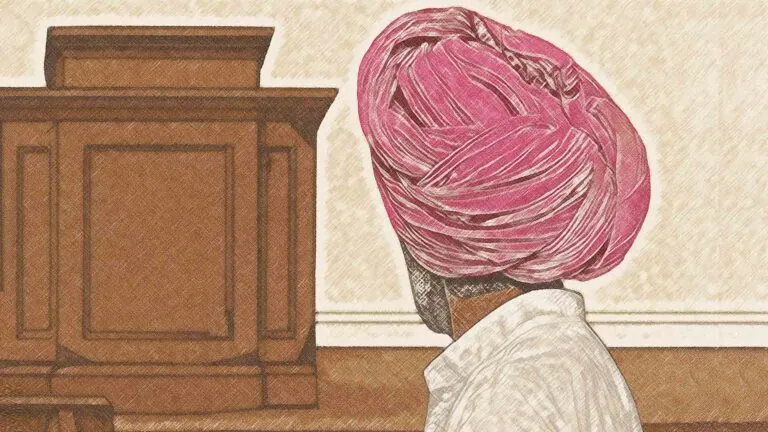There is style and there is class. Dominee may not have had much style, as the world considers style, but he had class.
Dominee had accepted a call to another church. At such a time we cover up the pain of separation with laughter. How could we be happy? This was the man whom God had sent to us to speak to us the Word of God every Sunday. We heard the voice of the Great Shepherd through His under-shepherd twice every Lord’s day. Because Dominee’s voice was so familiar, and his sermons somewhat predictable, we thought we knew him. We knew from the cadence of his heavily accented sentences when he was wrapping up the sermon — just the final song yet, and the benediction, and we’d soon be outside chatting, swapping stories, and laughing.
Dominee was not what you would call an especially stylish man. During all the years he preached to us he wore a grey suit. He may have replaced it with a new one once in a while, but we never noticed because the new one was identical to the previous.
Nothing stylish about Dominee. Even when he would drop by because of illness in the family or if someone needed encouragement, he’d wear a grey suit.
We thought we knew him, until his farewell evening.
As I said, when we are sad, we turn to laughter. To cover up our sadness.
The farewell evening had begun and was evolving in a predictable way. There was only one unusual thing that immediately caught everyone’s attention. Near the front of the church sat an old Sikh gentleman and his wife. We could tell he was a Sikh because he was wearing a turban. The turban happened to be pink. Later I was told it was, in fact, lavender.
The chairman of the men’s society, a serious man, ascended the pulpit. He read some Scripture, prayed, and invited us to sing a well-known Psalm. On behalf of the men’s society, he spoke some kind words of farewell to Dominee, his wife, and the children, and then presented them with a gift, a beautiful painting of local scenery: “We don’t want you to forget this beautiful part of the country!”
This was followed by several presentations — women’s, young people’s, youth. And on it went, predictably and comfortably. The presentations alternated between funny, sad, and poignant. But mostly we laughed. When the elders and deacons performed a humorous skit about Dominee’s typical way of leading a meeting, we laughed heartily. When one of Dominee’s local colleagues told a story about Dominee at a classis meeting, we laughed so hard we thought our sides were going to burst.
After several hours, when everyone was good and ready for coffee and cake, the chairman of the men’s society ascended the pulpit once again. With gravity, he thanked everyone for coming, bade Dominee farewell once more, and asked if there was anyone whom he had missed, or who had not been on the program but yet wanted to say something. The Sikh gentleman stood up.
Well, this was interesting. Slowly, with age and dignity, he walked to the front of the church. He began to speak. This was very interesting. No one could remember a Sikh speaking in our church. He began to tell a story.
It had been a hot summer afternoon when he and his wife were walking along the sidewalk. Suddenly overcome by heat, thirst, and exhaustion, he sat on a stone wall in front of a house. That house, as it turned out, was the Manse. Dominee was sitting in the shade reading a newspaper from the old country that had just come in the mail. He noticed the Sikh man sitting at the end of the driveway on the stone wall, and the man’s wife bending over him with a look of concern on her face.
Dominee got up to see if he could help. “My husband is very thirsty,” said the lady. “Could he please have some water?”
Dominee went to the house and came back with a pitcher of water and some glasses. He poured two glasses of water, and then he took a moment to speak about the other water, the living water that Jesus provides.
On that day Dominee and the Sikh became friends. The Sikh gentleman and his wife would drop by more often to talk with Dominee.
We never knew. We thought we knew our Dominee.
We all listened intently to the Sikh as he told us the story about our kind Dominee. He considered it an honor to count him a friend and wanted to give him a parting gift. The Sikh explained that it was their custom to give the turban they are wearing to their departing friend. The turban would be a reminder of their friendship. With that the Sikh removed the turban from his head, reached forward, and placed it on Dominee’s head.
Dominee was mostly bald and had a smaller head than his Sikh friend, and so the turban sank down over Dominee’s forehead. It was a sight to behold! Our Dominee clothed in his trademark grey suit, the only way we had ever seen him in all the years he had ministered to us, wearing a lavender-colored turban.
No one laughed, snickered, or tittered. Instead, after a moment during which you could have heard a pin drop, the congregation slowly rose and began to clap. We did not know whether we were clapping for Dominee or the Sikh. Likely, we were clapping for the Lord. We had seen a remarkable thing.
Our immigrant congregation may not have had much style, but on that evening we had class.
Dominee wore the turban for the rest of the evening, during coffee and as we all came by his table to say farewell. He wore it with pride.
Dominee did not have much style, but he had a lot of class. And we thought we knew him.
There is style, and there is class.
This is a true story, which I experienced as an adolescent boy at the departure of a neighboring minister. The references to style and class were inspired by Sietze Buning’s “Style and Class” collection of poems. This first appeared in the January 2015 issue.












